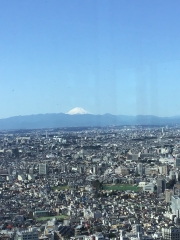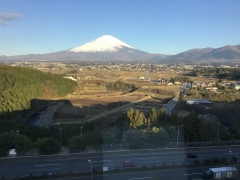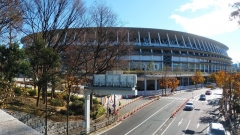19 November 2020
COVID-19 creates the very 21st century lifestyle and systems
New vaccines were recently invented for the flu. I guess things might be going back to pre-COVID-19 period.
But there should be three major lifestyle and system changes, which may remain in our society even after the pandemic is gone.
1. Basic Income; Wordwide lockdown measures let the world governments compensate their citizens for loss of income because they couldn't go to work or open restaurants. People and governments realized everyone needs basic income to prepare for such crisis, which may come unexpectedly in the future.
2. Online education and work; People realized there is no needs to spend extra-time or fees for commute to do the same things as we can easily do on internet.
3. Less crowded space to stay; People realized the more crowded place one is in, the higher risk of infection of the flu. Let’s always make a social distance everywhere, every time. Too many people gather in a small space is not desired. No more events like a rock concert in a big stadium. For businesses holding of big events to invite so many people is considered a great risk. That may have to be cancelled due to another pandemic resulting in a huge loss.
Designs of streets and buildings have to contain such notion. So in post-COVID-19 era, wider streets and corridors, bigger seats in less packed rooms and auditoriums. Conventional city layout should be drastically altered.

In that sense, rural lifestyle transcends urban one. More people will live in countryside and be able to work from home online not worrying about money because certain amount of money is paid or you can produce food on your farms so you do not die by losing jobs.

That is the very 21st century lifestyle.
29 February 2020
Do we need Olympics?
Tokyo 2020 Olympics is on the verge of cancellation due to the outbreak of novel coronavirus.
The main stadium in Tokyo.
It seems, this disease keeps spreading for months worldwide including the host nation, Japan. It is impossible to lock down. The only solution is invent the vaccine. Even someone found the one for the virus, it will take a few months or even years to bring it to practical use.
It is reported that IOC will decide whether to cancel the games by May at latest.
In my opinion, I don't care. I was actually against the Olympics to be held in Tokyo because of too much crowds and heavy traffic. Tokyo is already too crowded and busy.
Citizens don't want any more crowds in the city.
As for economic effect, it is just for a few weeks. It does not last so long and only benefits big companies who want to gain big money by sponsorship and construction of facilities.
In fact such things are true in every Olympics these days. It has been much commerialised for money making. Athletes have to do the matches in inadequate season and time to match with American TV broadcasting.
Summertime in Tokyo is too hot for athletes. It had to be scheduled in Autumn. 1964 Tokyo Olympics were held in October. But it was not good season for Americans because of baseball matches.
Swimmers had to swim early morning like 8AM in 1988 Seoul Olympics because that time was prime time in America.
In early 20th century, Olympics were used to heighten nationalism like Nazi-Germany did in 1936 Berlin and America did in 2002 Salt Lake after 911.
It is said if the Olympics were cancelled, it may be postponed to next year's same season.
But you never know when the outbreak ends.
But most ideal thing is to cancel the event so there is no more fuss. Then no more Olympics from now.
Tokyo, Beijing, Paris, and Los Angeles. All cancelled. Or each event can be scaled down or disperse.
It costs so much money and places too much burdens on athletes.
It is a great timing to rethink the significance of Olympics. The Olympics may be one of remnants from former century.
17:28 Posted in Ecology, Games, Health, Japan News, Sports, Tokyo Life, USA issues | Permalink | Comments (0) | Tags: olympic, tokyo, nazis, virus






